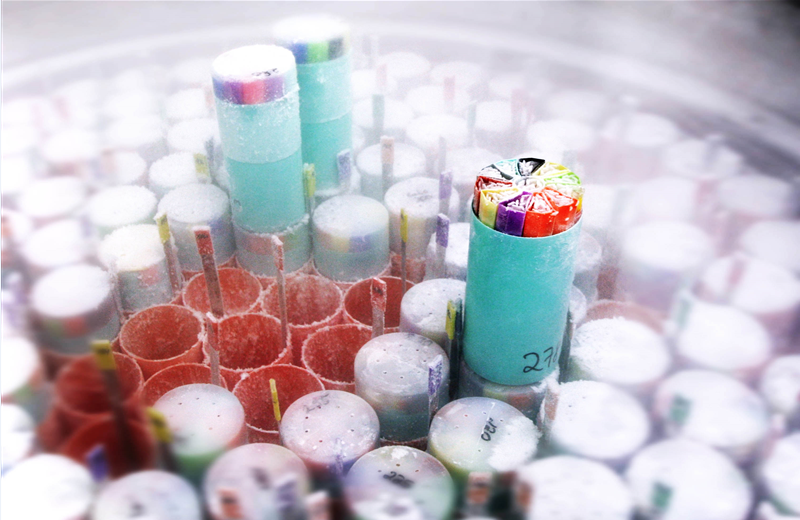04/05/2017
Print PageGerman biobanks – part of a Europe-wide network

“The German biobanks are involved in a pioneering joint venture that will lay the foundations for a new generation of biobanks connected to a Europe-wide network,” explains Prof. Fay Betsou from the Integrated Biobank of Luxembourg, who chairs the GBA’s Scientific Advisory Board.
“Connected, ultra-modern biobanks play a vital role in developing innovative diagnostic methods and treatments for patients,” explains Prof. Michael Hummel from Charité Berlin, who coordinates the GBA. Biobanks collect and store blood, tissue and other human samples and make them available for biomedical research. Their collections of samples and data are important for conducting disease research.
Connected biobanks are a basic essential for biomedical research
“In order for researchers to be able to search for samples and data beyond individual biobanks and to create multi-biobank collectives for research projects, the IT structures between biobanks need to be harmonized,” says Dr Martin Lablans, head of the IT center of expertise at the German Cancer Research Center. A total of 20 IT specialists at 13 locations will work together to connect sample data in each biobank with relevant clinical information and make it available to all locations, while complying with Germany’s stringent data protection standards. They will be using concepts and free software from the German Cancer Consortium (DKTK) that will be developed further within the GBA and then published free of charge for use by research groups.
Harmonization processes are also needed in the area of data sharing and the quality of biological samples and associated clinical information, and there are ethical and legal aspects that need to be discussed and harmonized. This is the only way that research projects will be able to pool and use biological samples and their data from multiple biobanks and countries.
Biobanks accelerate the development of new diagnostic methods and treatments
“The investment is worthwhile because connected biobanks with a high sample quality form the basis for significant, replicable medical research,” Michael Hummel explains. The quality and availability of the biological samples and associated data are of vital importance. Networked biobanks and the harmonization of data formats and processes are therefore essential if researchers are to be able to conduct significant, comparable analyses, particularly in the area of personalized precision medicine.
“The German Biobank Alliance is an excellent opportunity for the biobank community in Germany,” says Hummel. “It will help accelerate biomedical research in the long term and strengthen Germany’s position within the European and international research community.”